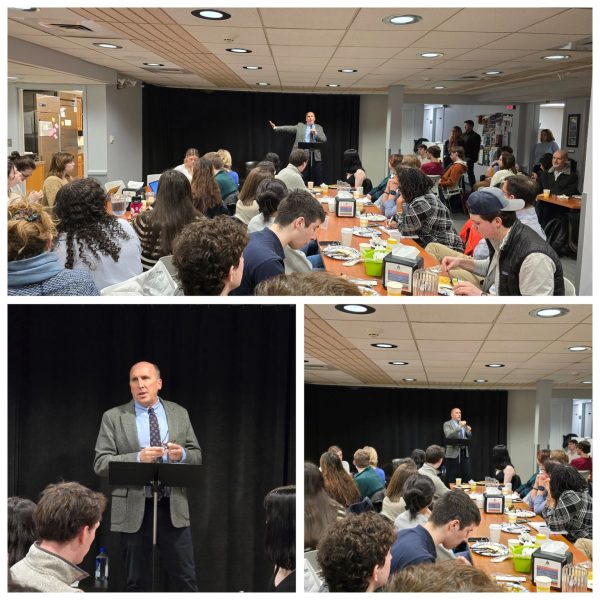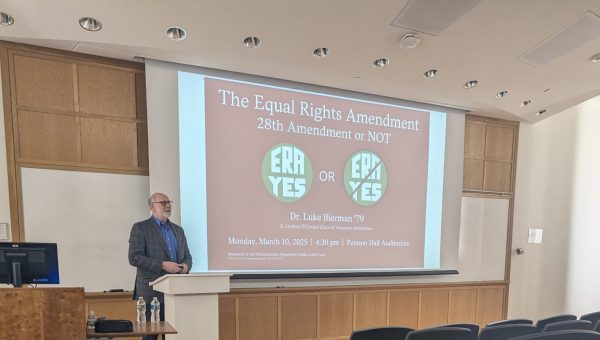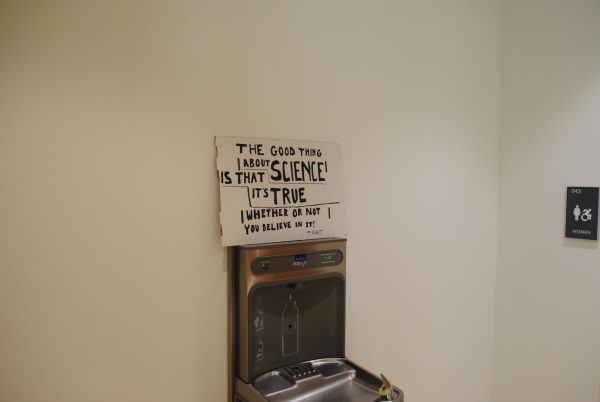Closing the Curtain to Draw the Line
Remember back when sex was a hush-hush subject? I miss those days dearly. Days of anonymity, under-the-table knowledge reserved for best friends and plenty of helpings of embarrassment for those who violated the cardinal rule of middle school: if you’ve done it, don’t flaunt it. This is not a dirty article stuffed with an exorbitant amount of “urbandictionary.com” slurs — it is simply a candid reflection on the “sexification” of our society.
In a day we might now regard as “the olden days,” we were innocent elementary school kids, unconcerned with puberty, zit-free and still deterred by the opposite sex’s “cooties.” Becoming teenagers was no easy task — those raging hormones with names we could not pronounce wreaked havoc on the way we saw the world. We giggled at the scientific names of private parts and squirmed awkwardly in ethics class. The reason we reacted in a way we might now regard as “immature” was because all of us were raised properly — that is, we knew what was appropriate and what was vulgar. Somewhere in between the pre-teen years and our current adult lives, it became acceptable — maybe even grown-up — to refer to the act of mating, and it’s associated organs in social conversations, in moments of frustration or when breaking the quiet in silent rooms. Kids acknowledge the facts in a way that is far more admirable than adults who might argue that what they blurt so liberally is “just the facts.” Perhaps it is accurate to say that many of us regard respect for baby making as outdated, or “olden,” like the years we last revered the act.
Now we come to the undeniable fact that someone, an individual, had to make it okay for us to begin the trend. From what I recall, our generation moved in this direction together. We pushed MTV and VH1 into pop culture by tuning in every time characters from our favorite “reality” shows, like The Real World: Random Place, hooked up, amid hidden cameras and intense love triangles. These “role models” affected us either subliminally, or consciously, pushing the notion that lucid displays of sexuality are “hot” and commonplace in the lives of young adults. Consequently, our gender differences became exacerbated by the roles we became widely aware we must take in initiating the act. In spite of known, documented effects that shows like The Real World have on a child’s perception of our society, nothing is being done to guard against growing up too soon. Unfortunately, casting has initiated for the phenomenal twentieth season of the popular reality T.V. show, clear indication that we have not yet shunned this socially controlling form of entertainment. (Of course, television programs aren’t the only mechanisms that have influenced our society but, for the most part, all forms of media have contributed in similar ways.)
One of the perks of being a wallflower is that you are spared the pressure of moving into an expected mode. I didn’t watch any of the first eighteen seasons of The Real World, although I was alive and of sufficient mental capacity to recognize and integrate their trend-setting activities like the majority of my classmates. Entering high school, you could say I was “green” — inexperienced and clueless of the corruption that had already laid claim to my peers. I had no idea kids used drugs and I certainly would not have believed you if you told me my classmates did more than just lip-locking when no one was around. Gradually, as I was informed of what I did not know, I felt myself change. I wished for the days I knew nothing. I wanted to be “out of it” and go back to living in blissful denial. Suddenly, the words I heard lingered between my ears and actually meant something — represented something tangible, something I felt I wasn’t meant to understand until way later. Metaphorically, it was a filth I could not be rid of, or maybe a load too heavy that I had no choice but to lug around. Yet, even now, in college, that pack upon my back is too cumbersome, the filth too potent to wash off — will I ever be 100 percent comfortable being promiscuous? Morally, this is an unnecessary worry — none of us should be fully willing to concede principle values of decency in order to fit in a mold that a few crude, immature producers dreamed up while they were high on memories of their barbaric college years.
I wish I could break free of many of the modern pop culture social etiquettes binding me, but wishing to live in never ending times of pre-corruption is ridiculous, and perhaps all of this comes down to the truth that the premature exposure of the youth to today’s stimulation, is what they will inevitably be faced with in the future. However, there is nothing wrong with being brought up conservatively, or feeling awkward around improper conversation. Sometimes I wish people would just keep what goes on behind closed doors, in the back seats of cars and in empty elevators to themselves. Inappropriate information is too much information.





